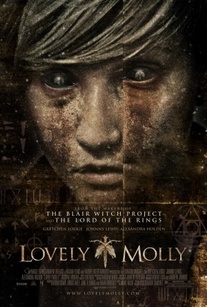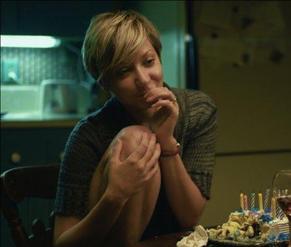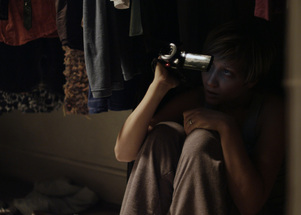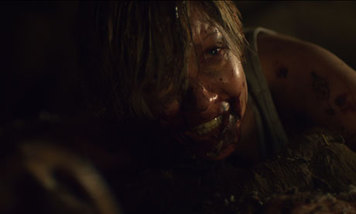
For the latest wander into the Horror Vault, we’ll be taking a look at what it means to be haunted. Whether the subject is a person or place, that which is haunted is possessed by something inescapable, an echo of the past that refuses to leave, marking that person or place until the cause is either exorcised or it consumes them entirely. The idea of being haunted needn’t have anything to any kind of literal spiritual inhabitant or ghost, but simply the unshakable feeling that something inside is amiss, a metaphorical shadow that has a literal effect on the person that carries it. Sometimes this effect can be frightening, even dangerous. Sometimes the haunting can move from a grim psychological shadow and become a terrifying supernatural presence. And here we find one such haunted individual in Lovely Molly.

With 2011’s Lovely Molly, many of these facets return to the fore, but it’s the overall notion of ambiguity that really pervades the majority of the film. As it is, it follows a newlywed couple, Tim (Johnny Lewis) and Molly (Gretchen Lodge), who move into the old countryside home of her long deceased father, the home in which Molly and her sister Hannah (Alexandra Holden) grew up. Eerie goings-on begin to build in the couple’s home and an incredibly painful past within these walls starts to take hold of Molly.

Returning to the notion of ambiguity, the crux of much of what we see in the film comes from both what we are shown and what we grow to learn over the course of the running time. Molly has a troubled past… a seriously troubled past, the source of which becomes very clearly rooted within the house in which she now lives. (The natural question as to why she would live in that house is answered in a way, though it does clearly hold a greater significance in terms of Freud’s psychoanalytic notion of what the basement represents within the human psyche as a place to store past events and traumas). Molly grew up as a child abused by her father, where her mother wasn’t there and her sister did what she could to protect her, but couldn’t be around all the time.

It’s here where the significance of the POV approach comes in. With Molly’s behaviour constantly being questioned and her stories being dismissed, she naturally feels the need to try and prove what she is saying, and so tries to document her torment on camera. The resultant footage is at once both chilling and damning, even sometimes managing to be nicely metaphorical. One scene in which a concerned but frustrated Tim tries to coax a terrified Molly out of the closet, and the perspective has him looming over her in the doorway, conjuring the image of an adult towering ominously over a frightened child. And then there are the times that whilst we can be sure that Molly is the one holding the camera, it’s not Molly whose gaze we share. And that point starts to become more disturbingly convincing when the camera ventures out into the woods behind the house, looking for something. Given the mental fracturing that she experiences, it’s difficult to really say whether or not Molly has completely disconnected from herself and fallen into another identity, or if this is in fact a confirmed indication of something more evil, more supernatural, a form of possession. In either case, the nature of this mental break/other identity/possession would seem to indicate something horrifying… that Molly’s father has once again taken hold of her. For good.
Lovely Molly is a tragic and incredibly unsettling film, with implications that only deepen the despair after the film has ended. Eduardo Sánchez has crafted a palpable sense of dread and an ominous atmosphere, with the sound design and score only adding to the already menacing mood that pervades the film from beginning to end. The whole cast do a great job, but it’s Gretchen Lodge’s central performance that takes the full weight of the film, moving from a sweet and happy Molly to an utterly emotional wreck to a young woman deadened, hollow, haunted. It’s an incredibly brave turn from a young actress of whom we should most certainly be seeing more.

 RSS Feed
RSS Feed
